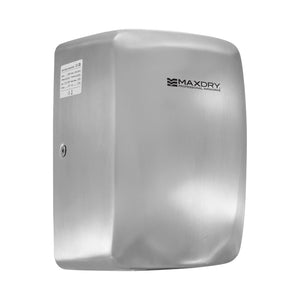Importance of Indoor Air Quality
Imagine living in a beautiful, luxurious house with stunning views — but every breath you take is filled with contaminants. Sounds like a nightmare, right? Indoor air quality, often overlooked, plays an essential role in our health and well-being. It's not just about comfort, it's about living in a healthy indoor environment. Let's dive into the depths of indoor air quality and understand why it's crucial for all of us.
Impact of Poor Indoor Air Quality on Health
Ever wondered why sometimes you feel fatigued, dizzy, or have a headache for no reason? Well, it might be because of the indoor air pollution. Let’s check the impact of poor indoor air quality.
1. Direct Implications on Health
Indoor air pollution can be stealthily lurking, sometimes at concentrations 2 to 5 times higher than outdoors. From allergens and mould spores, to volatile organic compounds (VOCs), these contaminants can set off a myriad of health issues:
- Respiratory Ailments: Constant exposure can aggravate conditions like asthma and lead to chronic respiratory diseases.
- Allergic Reactions: Pollens, dust mites, and other allergens in indoor air can instigate sneezing, itching, and other allergic manifestations.
- Mental Health: Believe it or not, poor air quality can also contribute to feelings of anxiety, depression, and fatigue.
- Cognitive Impairments: Prolonged exposure to certain pollutants can diminish cognitive functions and lead to long-term deficits.
2. Poor Cognitive Performance
Remember those days when ideas flow seamlessly, and you feel incredibly sharp? Air quality plays a pivotal role here. Enhanced ventilation and air quality promote better cognitive scores. Whether you're a student, a professional, or simply a homemaker, clean air can be the difference between a mediocre day and an outstanding one.
3. Poor Sleep Quality
Breathing pure, clean indoor air is akin to listening to a soothing lullaby. It paves the way for deeper, more restful sleep, ensuring our bodies rejuvenate optimally. Clean air reduces the risk of respiratory issues and allergies, directly benefiting our overall health. Furthermore, better sleep quality is linked to improved cognitive function and reduced stress levels.
4. Economic Repercussions
Beyond the realm of health, poor air quality in homes can drain finances. Think of the medical bills, the missed workdays, and the cost of medications. On a larger scale, it can weigh down national healthcare systems.
Consider your indoor air as the invisible chef of your home. Just as the quality of ingredients determines the taste and nutrition of a meal, the quality of indoor air moulds our health, mood, and overall well-being. Would you willingly consume a subpar meal? Then why compromise on the quality of the air we breathe round the clock?
Beyond the Spectrum of Health
Indoor air quality isn't just about how many pollutants or allergens are in the air. While these tangible metrics are undoubtedly vital for our physical well-being, the importance of indoor air quality stretches far beyond these parameters, influencing intangible aspects of our lives that often get overlooked.
-
Psychological Well-being and Mood Enhancement
Think about those times when you enter a room, and it feels stuffy or has an odd smell. Without even realizing it, your mood might dampen, or you may feel an urge to leave. Contrastingly, spaces with clean indoor air often feel inviting and comforting. This isn't a mere coincidence.
Air quality plays a surprisingly significant role in our psychological well-being. A well-ventilated room with fewer contaminants fosters clarity of thought, reduces feelings of anxiety or uneasiness, and enhances our overall mood.
-
Amplifying Productivity
Here's a revelation: our efficiency is, to a significant extent, dictated by the air we breathe. Offices or study spaces with improved indoor air quality boost concentration, reduce fatigue and sharpen our decision-making abilities. As a result, tasks get completed faster, with fewer errors, promoting not just professional success but also personal satisfaction.
-
Cultivating Positive Social Interactions
Ever noticed that some homes or venues seem to encourage lively conversations and warmth, while others might lead to guests checking their watches a bit too frequently? The air quality in homes and public spaces can influence social interactions. Fresh, invigorating air can stimulate lively debates, hearty laughs, and meaningful heart-to-heart talks, while stuffy environments might curtail them.
-
Fostering Creative Endeavours
Every artist, writer, or creator knows the value of a conducive environment for birthing ideas. Spaces with optimal indoor air quality can stimulate the brain, promoting creativity and innovative thinking. Whether it's a canvas waiting for a splash of paint or a blank page awaiting words, clean air can be the silent muse many seek.
As the world evolves, and we become more health-conscious, let’s not forget the air that fills our lungs, our homes, and our lives. Prioritizing it is not just an act of self-care but a commitment to our future and the well-being of our loved ones.
FAQs
Poor indoor air quality can cause respiratory issues, allergies, fatigue, and even long-term diseases like asthma and heart problems.
Common pollutants include dust mites, pollen, pet dander, mold spores, and VOCs, originating from furniture, cleaning agents, and outdoor allergens.
You can use air quality monitors that measure pollutant levels or hire professionals to conduct a comprehensive assessment.
Regular cleaning, using air purifiers, keeping plants, and ensuring good ventilation are some best practices.
Ventilation systems exchange indoor polluted air with fresh outdoor air, reducing the concentration of contaminants.
Spider plants, snake plants, and peace lilies are some plants known for their air-purifying qualities.
Long-term exposure can lead to chronic respiratory diseases, and heart diseases, and can adversely impact cognitive health.
Regular maintenance, using quality filters, and ensuring proper ventilation can optimize HVAC for better air quality.
Health organizations recommend maintaining low levels of pollutants, ensuring proper ventilation, and keeping humidity below 60%.
UV light purifiers, HEPA filters, and activated carbon filters are among the latest technologies for air purification.
Related Products
-
ThinMAX High Speed Hand Dryer - Black Coated Stainless Steel

- Regular price
- $427.60
- Sale price
- $427.60
-
SpaceMAX High-Speed Vertical Hand Dryer, Brushed Stainless Steel (Satin)

- Regular price
- $279.50
- Sale price
- $279.50



